All about inverter split systems
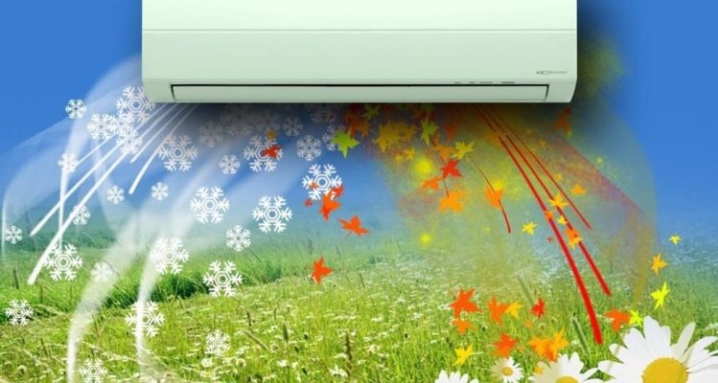
The constant rise in temperature on the planet forces scientists to work on the creation of new models of climatic installations, which would not only make people's lives more comfortable, but also help to significantly reduce the consumption of electrical energy. One of the latest inventions of engineers is an inverter split system, which allows you to reduce or increase the temperature in a room without temperature jumps, which has a beneficial effect not only on the period of operation of the device, but also on human health. Due to the high cost of the device, its increased sensitivity to voltage changes, manufacturers are constantly working on improving devices and reducing their cost.
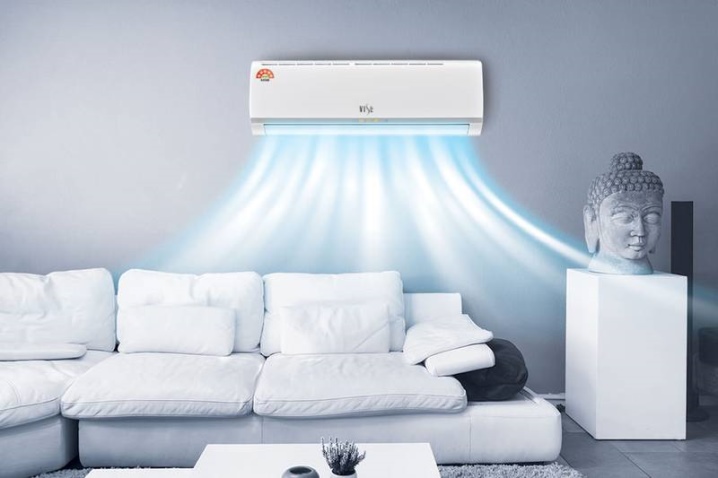
What it is?
Inverter split system means climatic equipment with the function of self-regulation of the power level, in which periodic current of different magnitude and direction is converted into current with the necessary quasiparticles, as a result of which the efficiency of generating cold and heat by the device is increased.
This type of device is indispensable in regions with significant temperature fluctuations in the external environment.
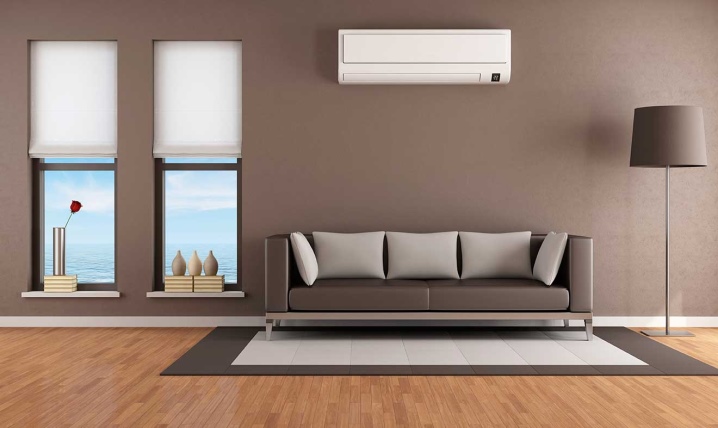
The engine speed in an inverter multi-split system is infinitely adjustable depending on the current temperature parameters inside the room. The rotation speed depends on the work of the built-in controller, which automatically determines the required power level or the possibility of switching to economical operation. During the operation of the device, the device operates with minimal temperature deviations.
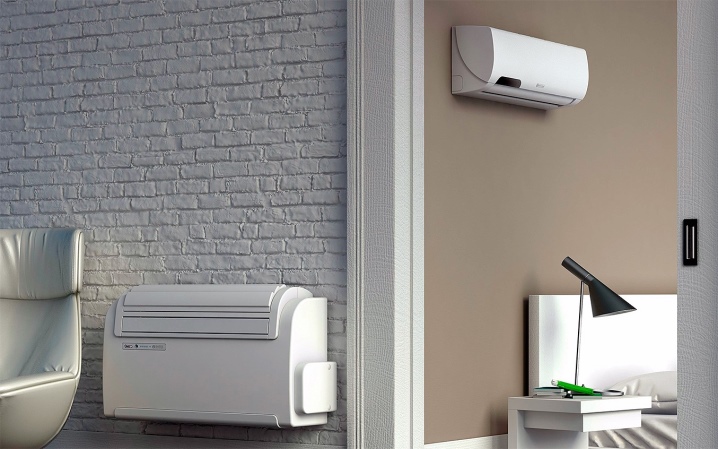
Inverter air conditioners are very economical equipment that has a low energy consumption class and a minimum noise level. A small number of motor starts significantly reduces the frequency of breakdowns and increases the life of the device.
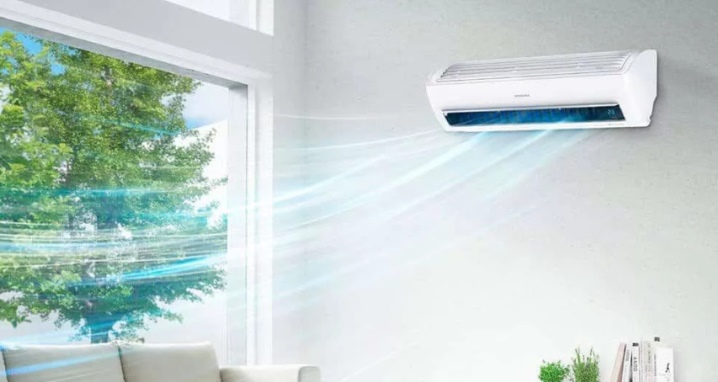
Saving electricity consumption is due to the presence of a special converter that works in a gentle mode. The absence of constant start-up and shutdown, as well as operation at low scalar power levels, increase the life of the device by 30 percent.
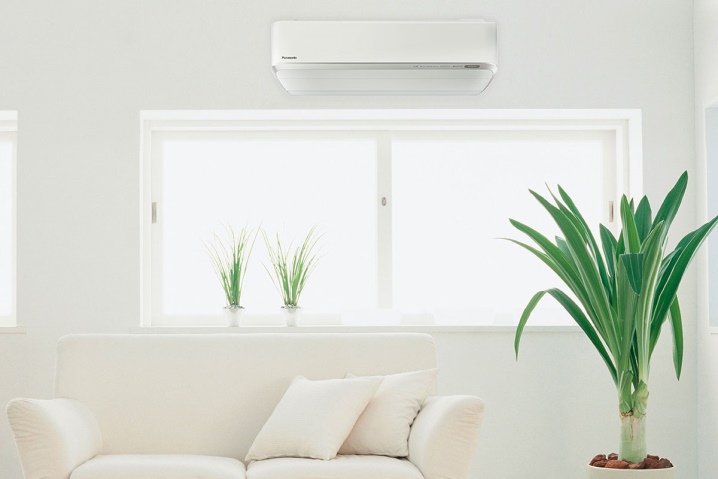
What kind of premises is it suitable for?
Inverter air conditioners are unique split systems, the operation of which does not provoke drafts and sudden temperature changes. These devices have been specially designed for home and living quarters, as well as for medical and educational institutions.
Thanks to their quiet operation, the inverter climate control units can be used in sleeping and resting rooms, as well as in living rooms.

Despite the large number of advantages of inverter systems, experts do not recommend installing them in the area of constant residence of people. In rooms with a balcony, it is necessary to take the outdoor unit outside, since working on a warm balcony will not allow the device to cool as efficiently as possible.
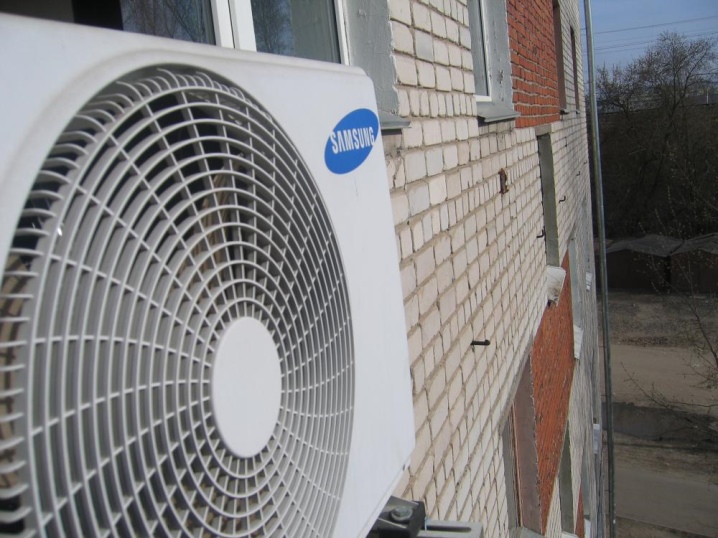
Experts do not recommend installing these devices in classrooms, offices and gyms, in which hum and temperature fluctuations will not have a negative impact on the course of the work process of employees or on the course of the training process. It is impractical to purchase expensive air conditioning split systems for industrial and technical buildings, as well as for common rooms.
To cool these areas, you need to focus on classic devices with a minimum set of functions.
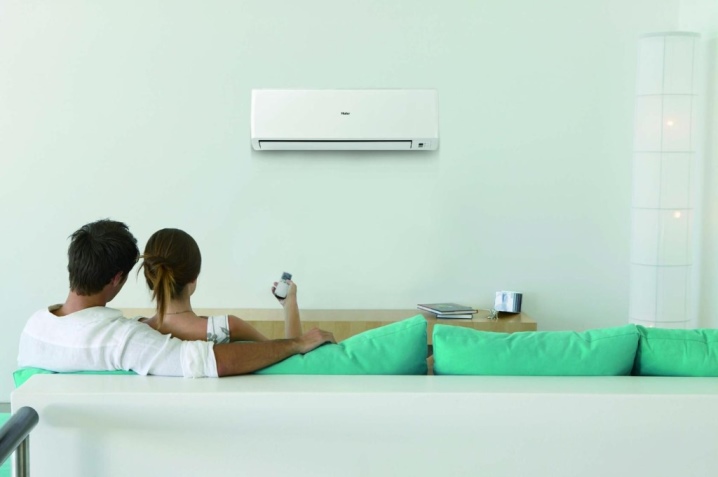
Design and principle of operation
Wall-mounted air conditioners with inverter control type have a classic structure and consist of outdoor and indoor split systems.
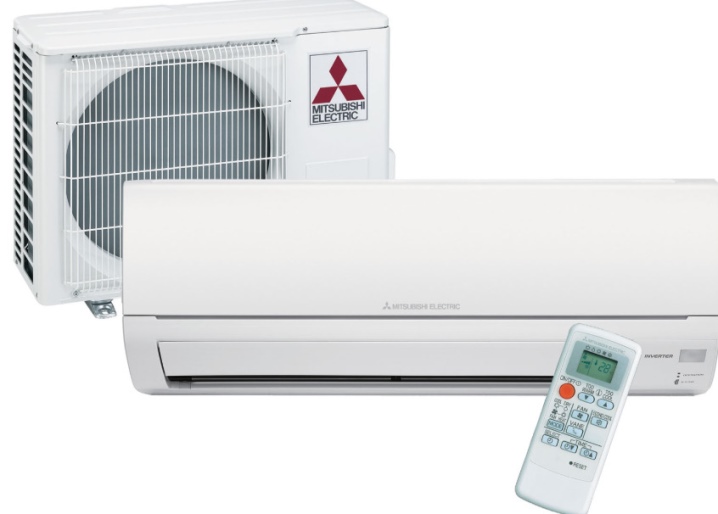
The outdoor unit kit includes the following items:
- compressor converter;
- freon module with fluorine and saturated hydrocarbon;
- heat exchanger;
- air supply unit (cooling engine);
- control module with a set of microcircuits;
- detachable connections.
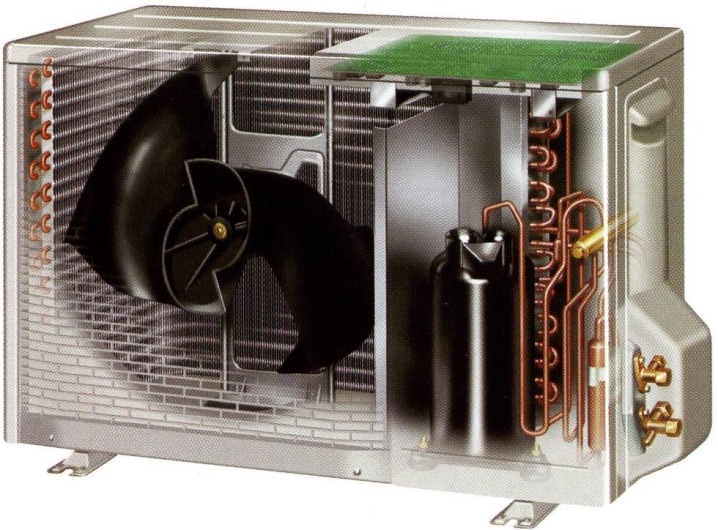
Indoor unit accessories:
- heat exchanger;
- fan;
- transverse and perpendicular curtains;
- filtration elements;
- Remote Control;
- condensate container.
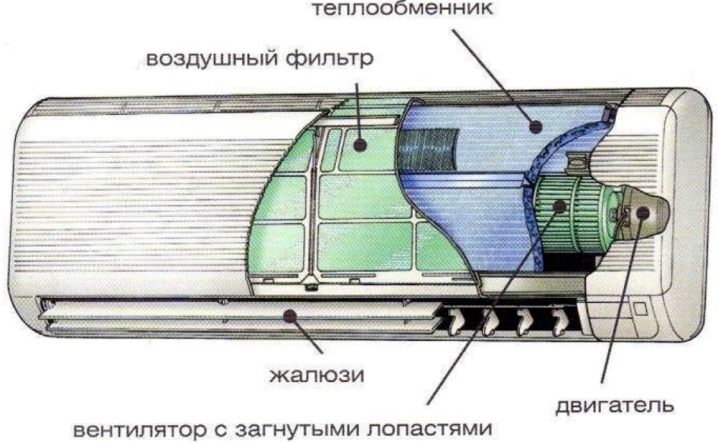
Despite the external similarity of an inverter split system with a classic air conditioner with forced ventilation, the device still has a number of features, the main of which is the control board. This element is located in the outer part and serves to regulate the operation of the entire system.
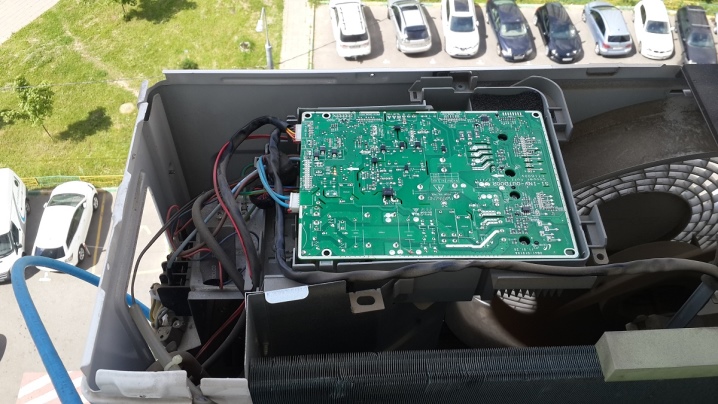
The essence of the apparatus is the following mechanisms:
- switching on the device with simultaneous equalization of the temperature in accordance with the established indicators;
- inclusion of an injector for faster cooling;
- transferring the compressor to the minimum load level;
- permanent fixation of the thermal regime and maintaining it with an accuracy of several degrees.
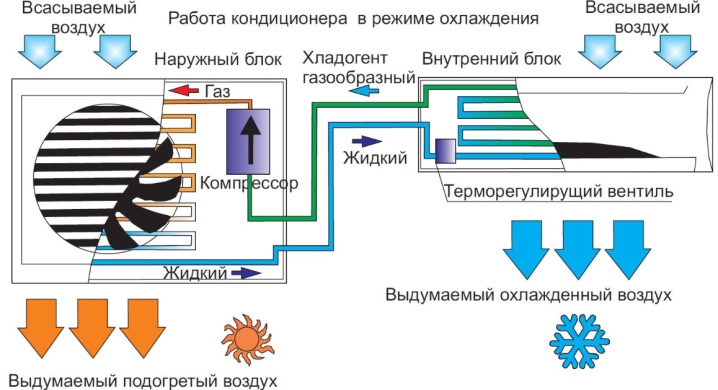
Advantages and disadvantages
Like any climatic equipment, inverter air conditioners have a number of pros and cons.
Let's start with the merits:
- smooth temperature control;
- ease of use;
- minimal wear of component parts;
- no load surges in the electrical circuit;
- instant cooling of the space in the starting mode;
- trouble-free operation for 15 years;
- long-term maintenance of a given thermal range;
- continuous operation;
- the ability to use the heating mode at an outdoor temperature of -25 degrees;
- economical consumption of electrical energy;
- long period of operation;
- low hum frequency.
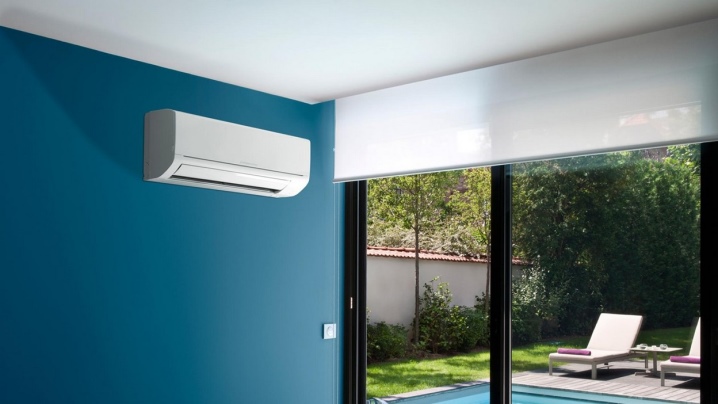
Disadvantages:
- high price range;
- complexity of repair, high cost of spare parts;
- instability of the board to voltage fluctuations (they do not tolerate voltage drops).
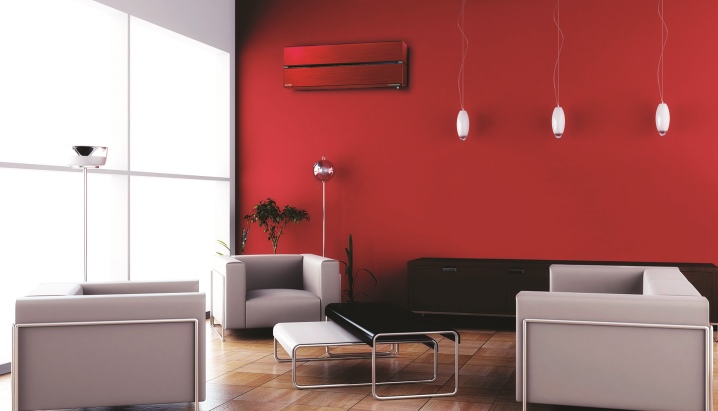
Manufacturers
This group of products is presented on the market by many manufacturers. Experts recommend paying attention to Korean and Japanese models, which are of the highest quality. Specialists of Japanese companies are constantly working to improve their products, making them even quieter and more reliable.
Most Japanese air conditioners are capable of changing the power range from 25 to 75%, and some new items have power rates from 5 to 95%.
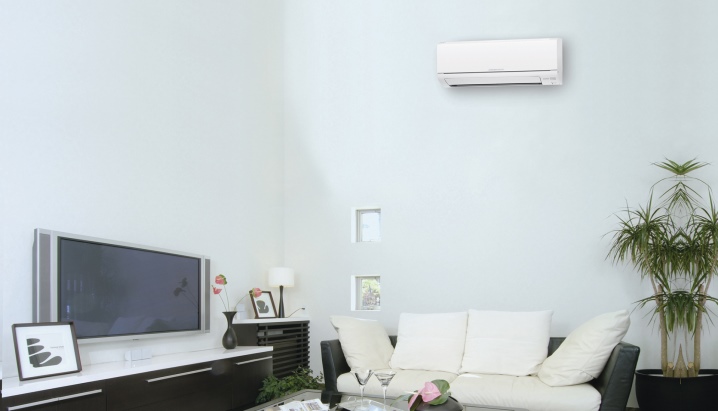
The Korean product also deserves attention, which is much cheaper in comparison with the Japanese one, but is also slightly inferior in quality. Products of Chinese brands are in less demand due to the possibility of changing the capacity only within the range from 30 to 70%.
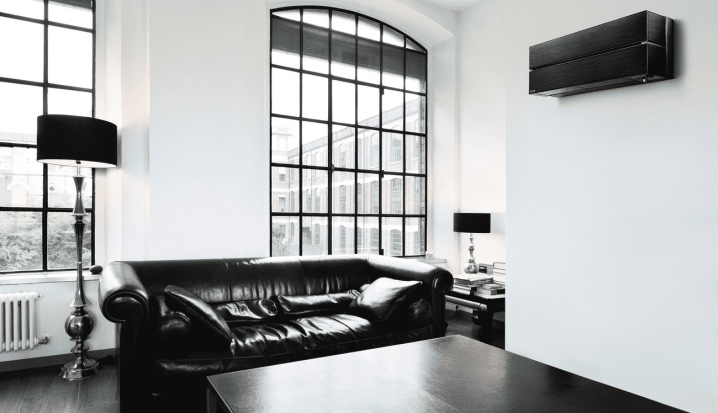
In the ranking of the top 10 manufacturers of inverter split systems, the most famous companies are in the lead.
- Daikin Is a Japanese brand that specializes in the production of climate control systems. All manufactured products undergo rigorous testing, only after which the best products go to retail chains. Advantages - a long period of operation, low noise range, high ergonomic performance, versatility, and the presence of a self-diagnostic function.
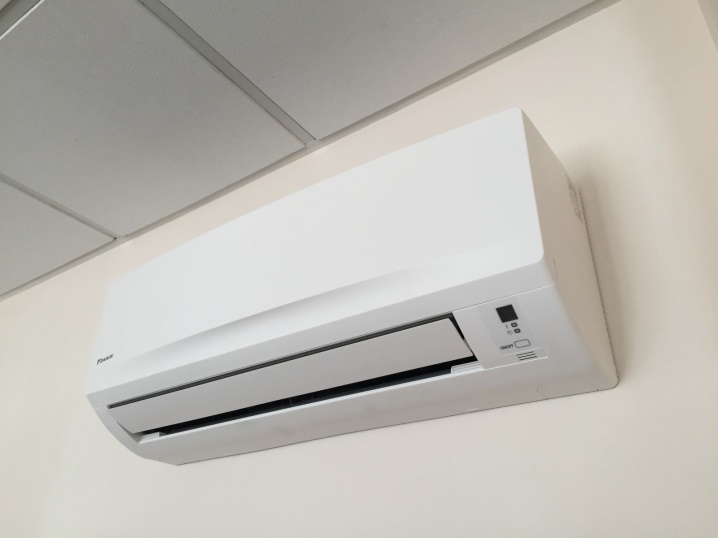
- Mitsubishi Electric Is a Japanese company that produces the most reliable split systems.This manufacturer uses only modern equipment and innovative technologies, and all manufactured products undergo the most in-depth testing. A distinctive feature is the ability to heat the room at an outside temperature of -20 degrees.
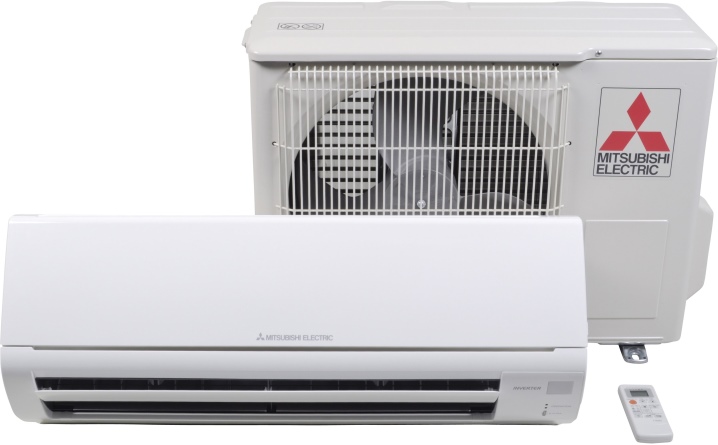
- Toshiba Is a Japanese brand that manufactures all modifications of air conditioners. A distinctive feature is an affordable price range. The manufacturer is engaged in the release of several lines of the system.
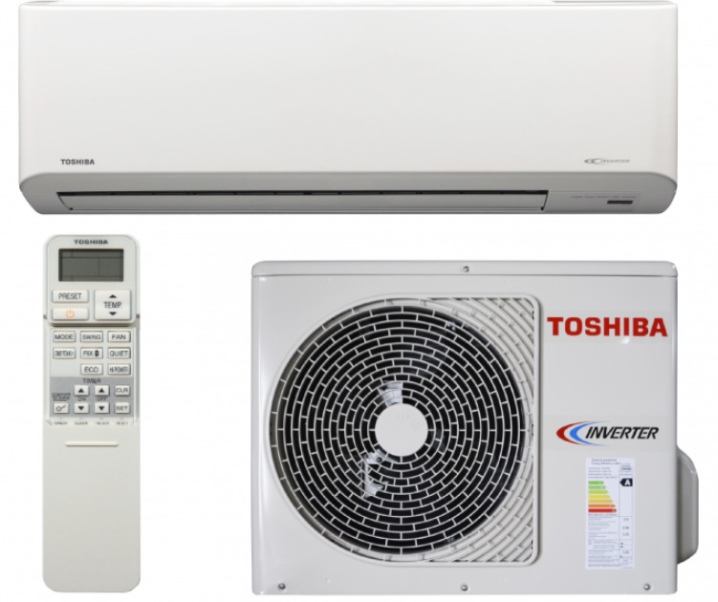
- Fujitsu - a company whose products are distinguished by high assembly quality, ease of operation and maintenance. Low power models that are installed in residential premises are in high demand. All equipment is equipped with additional functions - off timer, sleep mode, self-diagnosis.
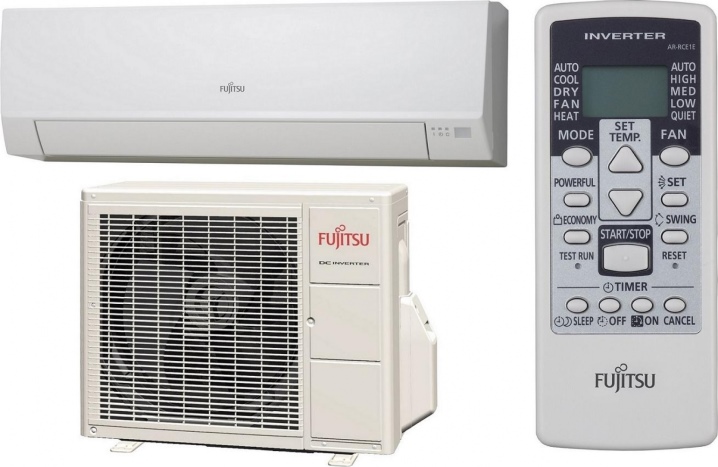
- Samsung Is a Korean brand that produces inexpensive products. Despite the low price range, all products are of high quality and are manufactured in accordance with established norms and quality standards. The low cost of air conditioners is due to the operating period of up to 10 years, as well as the lack of additional functions.
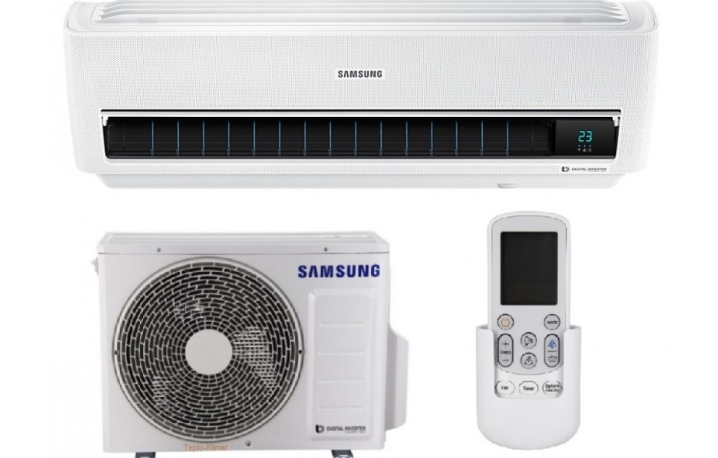
- Lg Is a Korean company that produces inexpensive models. Due to the high quality and affordable price, all models of this manufacturer are in high demand. Advantages - reliability, durability, versatility, creative design, automatic and plasma cleaning function, air ionization.
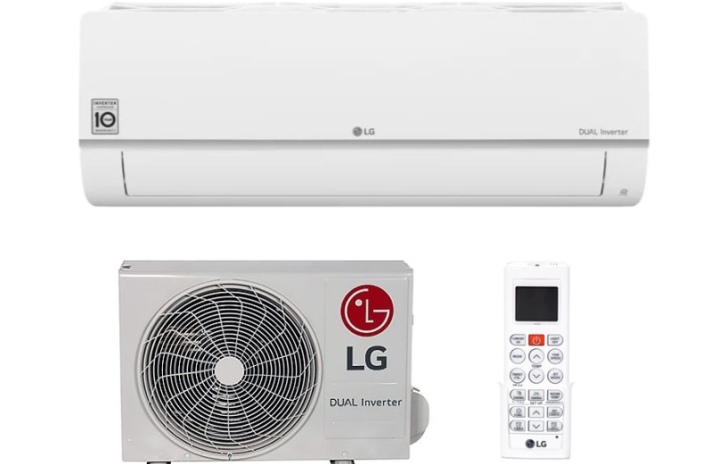
The overview of these companies is far from complete, and the products of new companies are constantly replenishing it.
Selection Tips
On the shelves of household appliances stores, you can see a large amount of these devices, which differ in appearance, price, functionality and country of manufacture, which often provokes the complexity of the choice. The main criterion when choosing a product is the type of technology, which can be of the following types:
- American Digital Scroll technology;
- Japanese development DC Invertor.
Experts recommend paying attention to Japanese models, which are more efficient and durable.
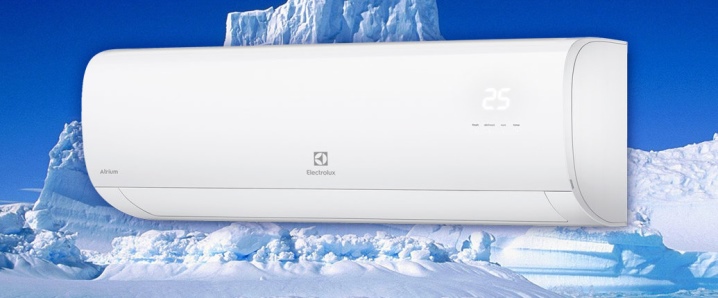
Parameters that have a direct impact on the choice of the product:
- power range;
- the level of noise fluctuations;
- availability of additional functions;
- retention stability of the selected temperature range;
- ambient temperature level at which heating is possible.
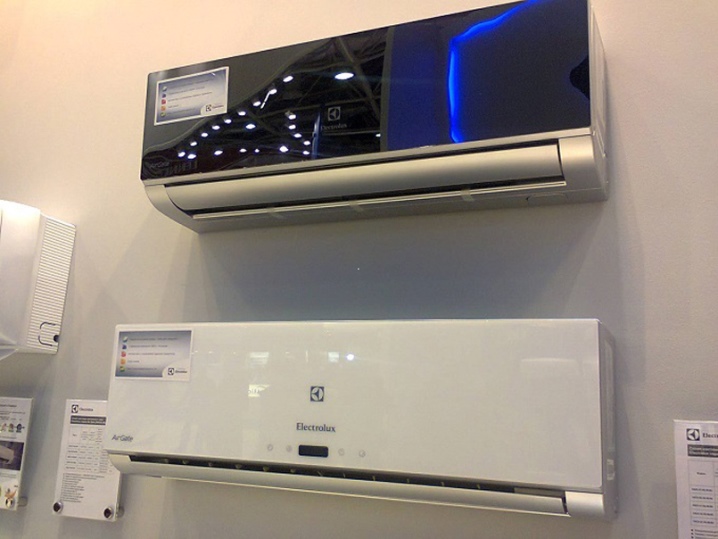
Most of the goods on the domestic market are products made by foreign brands, but in recent years, Russian air conditioners have also begun to appear. It is more economical to choose exactly these products, and you should not overpay for useless functions.
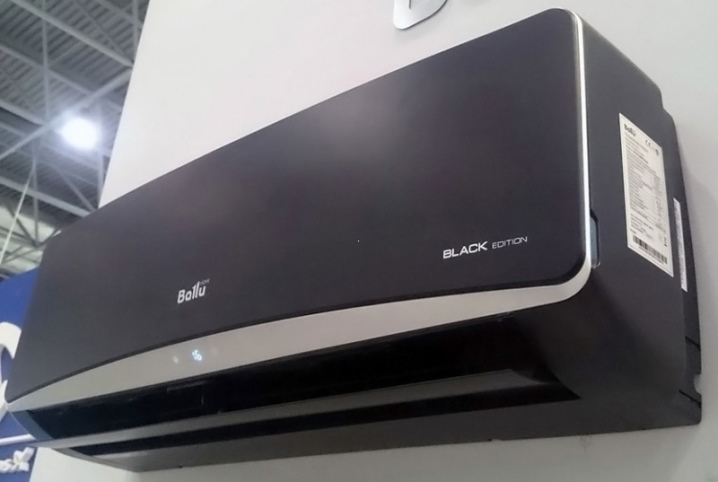
Subtleties of installation
Installing an inverter air conditioner is a set of simple activities that you can do with your own hands, with a little practice, and having mastered the theory. Experts recommend these actions to be carried out at the stage of repair work in connection with the need for gating and drilling of walls.
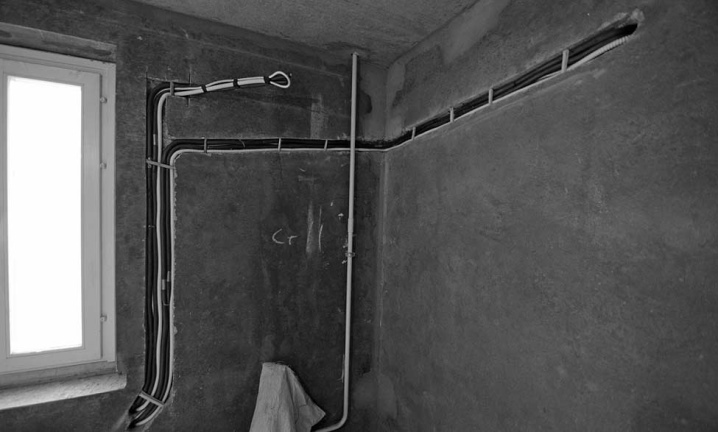
Before starting the installation, you need to prepare the necessary set of tools in advance:
- vacuum pumping unit;
- multimeter;
- parameter measurement indicator;
- pipe cutting tool;
- pressure gauge;
- puncher;
- tools for changing the configuration of the pipe edge;
- example.
Copper alloy pipes with modified ends are indispensable for installing the air conditioner.
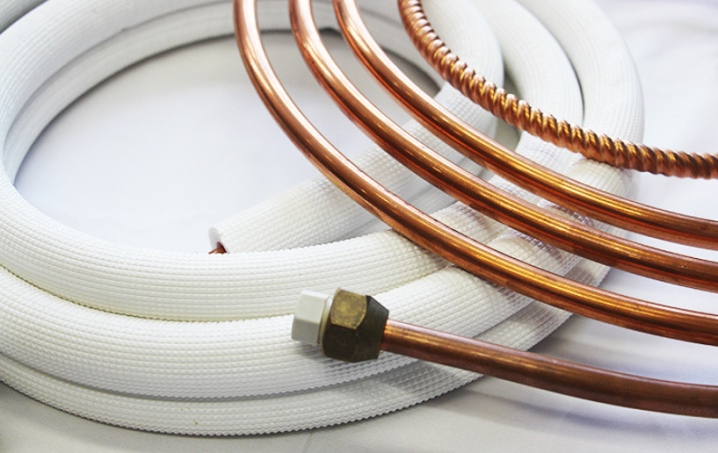
The main stages of work performance:
- fastening of the street part in the reach area for subsequent maintenance and cleaning;
- installation of the indoor unit;
- power line connection;
- pipe laying;
- evacuation of the system;
- filling and testing.
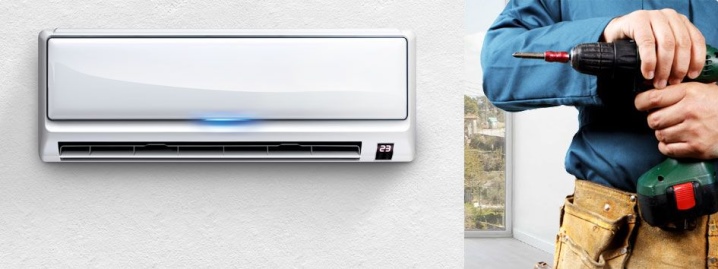
To fasten the outdoor unit, use a spirit level to mark the bracket on the wall and drill holes for the steel rods. To lay communications, you need to make a through hole in the wall with a diameter of 8 cm. If the building has brickwork, experts recommend drilling along the seam between the bricks. Before fixing the indoor unit, you must first determine its location.
It is strictly forbidden to mount this element behind curtains, above a central heating system, or in rooms with electrical interference that could damage the processor.
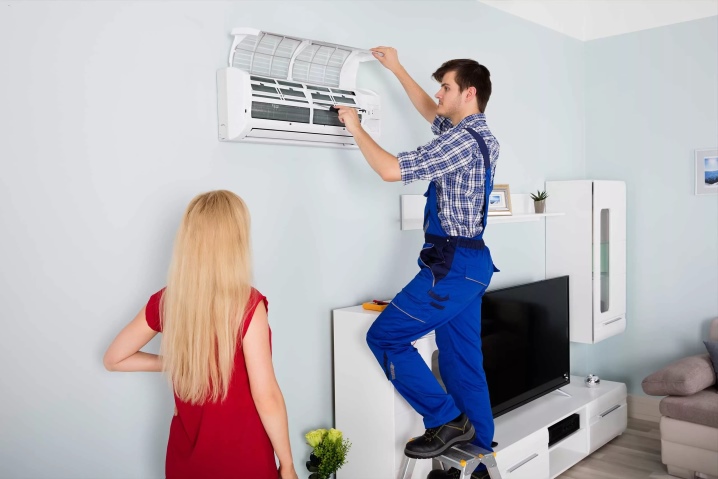
The selected wall should not have any laid communications and electrical wiring. In order to hang the indoor unit, it is necessary to attach the mounting plate, and the communication systems are laid in the holes on the side wall.
A prerequisite for installing an air conditioner is laying separate wiring and installing an automatic shutdown.
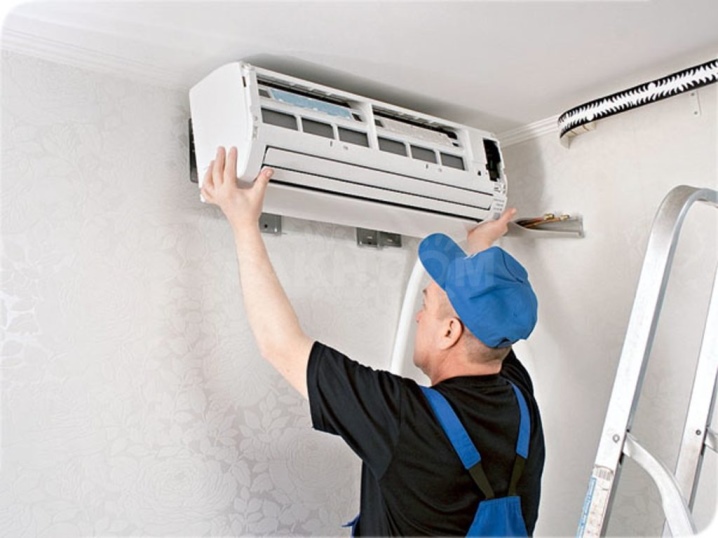
To determine the phases when connecting wires, you must use the indicator. In order to correctly connect all the wires, it is necessary to use the connection diagram, which is described in the operating document from the manufacturer. Before laying pipes, they must be cut, with a special tool to make the necessary bends and insulate with heat-insulating material. The prepared elements must be connected to the inner and outer parts of the device according to the instructions.
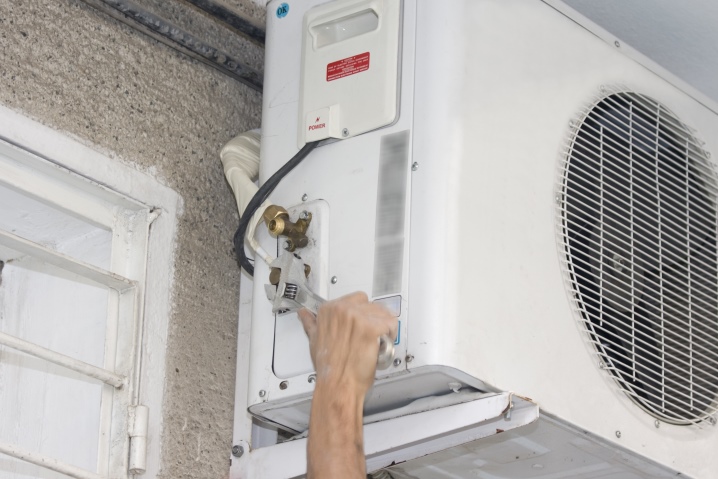
System evacuation is an important step to remove all moisture and dust particles. To achieve the maximum effect, it is necessary to carry out vacuuming only after complete sealing, otherwise it will not be possible to pump out all the air. The final stage of installation is filling and testing the device.
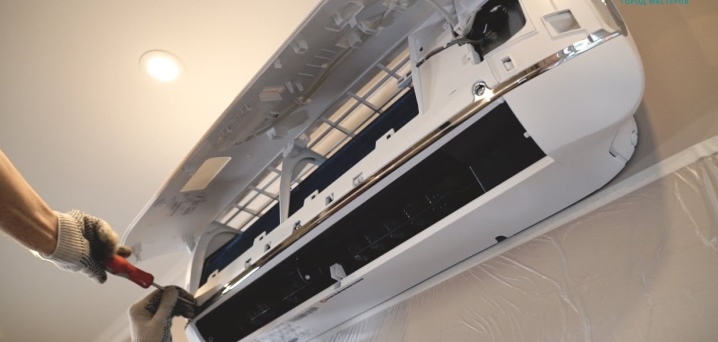
In the next video, you can watch the installation of a modern inverter air conditioner with 3 indoor units.













The comment was sent successfully.